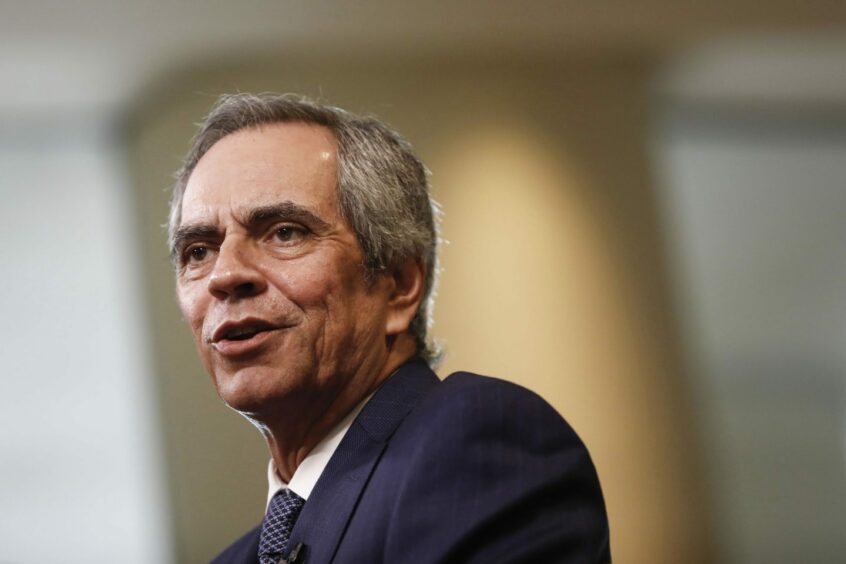
Philippine billionaire Enrique Razon made his fortune operating ports and running casinos. His next target is the country’s nascent renewables industry.
The nation’s second-richest man is focusing on solar farms, battery facilities and water projects in an effort to attract international investors. His green push through Prime Infrastructure Holdings Inc., which will go public later this year, is aligned with broader plans by the government to increase the use of renewable energy to 50% by 2040.
The need for more energy of any sort is urgent in the Philippines, where growth in power demand has outpaced new capacity. The Southeast Asian nation, which imports almost all of its oil requirements, is looking to spend more on fuel subsidies as a cushion against higher prices. Developing domestic renewable sources will also help the nation reduce dependence on oil and coal.
The country is “probably not where we should be in terms of power supply demand. We’re probably not where we should be in terms of water availability and sanitation, or probably not where we should be in terms of waste management and climate. If you take all that into consideration as an investor, it’s perfectly logical to invest into the Philippines and Prime Infra,” Chief Executive Officer Guillaume Lucci said in an interview.
It’s building a solar-and-battery facility that will displace annual consumption of about 1.4 million tons of coal, equivalent to nearly 6% of the nation’s annual needs. Also in the works are a 1,400-megawatt hydropower plant at Laguna de Bay just south of Manila, as well as two water projects that will provide 518 million liters of water to areas around the capital by 2025.
Getting these projects off the ground will depend on the firm’s planned 25.6 billion pesos ($449.2 million) initial public offering in November, which is poised to be the biggest IPO this year and among the largest ever in the Philippines. Only eight firms have listed in the nation this year, raising a total of 17.2 billion pesos. That’s set to be the worst showing since 2018 amid a global market slump.
“It will be a major play on Philippine renewable energy, a narrative that’s still in the early stages of growth and a sector the government wants developed,” said Carlos Temporal, analyst at AP Securities. He said the IPO “could attract strong demand because of the industry it’s in and the company’s owner.”
Razon, who is also the chairman of International Container Terminal Services Inc., which operates more than 30 port terminals in 20 countries, is estimated to be worth $4.8 billion, according to the Bloomberg Billionaires Index.
The Philippines is seeking to increase renewables’ share to the overall energy mix to 50% by 2040 from just a fifth in 2019. President Ferdinand Marcos Jr. , in a speech in July, said solar, wind, hydropower and geothermal energy sources are key to achieving his climate agenda.
Still, there are risk to Prime Infra’s renewable ambitions. Supply chain snarls are raising the price of solar panels for the first time in a decade, and strong competition as Europe and the US boost climate ambitions could mean prices stay higher than expected for the next few years. That would raise the cost of Razon’s big solar-battery project and potentially eat into its profitability.
At the moment, Prime Infra gets 80% of its revenue from Manila Water Co. Inc., which supplies half of the Philippine capital. In four to five years, revenue from electricity will account for 40% from below 20% currently, Lucci said.
While its first project was a 29-megawatt gas-fired power plant in Iraq, Razon’s infrastructure company plans to grow its power, water and waste-management portfolio in the Philippines before expanding overseas, the CEO said.
Recommended for you
